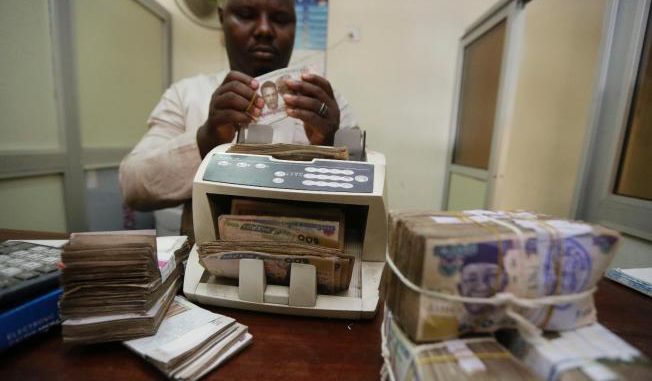
LAGOS, Sept 23 (Reuters) – Nigeria’s interbank lending rate eased to around 15 percent on Friday, down from nearly 40 percent for overnight lending a week ago, as the disbursal of August budget allocations to government agencies boosted market liquidity.
Overall the market had a liquidity surplus of 283.61 billion naira at Friday’s opening, compared with the previous week’s deficit of 128 billion naira.
Nigeria distributes money monthly to its three tiers of government from a centrally held account fed by oil revenues and taxes, which helps provide liquidity and cut borrowing costs for the banking sector in Africa’s biggest economy.
Traders said about 231 billion naira ($733.33 million) was injected into the banking system late on Thursday as states and local government were paid their budget portions.
The sale by the central bank of 201 billion naira and 206 billion naira of Treasury bills on Thursday and Friday did not fully offset the positive impact on market liquidity of the cash injection, dealers said. The bills were sold at yields of between 18 and 18.5 percent.
“We expect the central bank to continue to sell treasury bills in the coming days in its bid to reduce pressure on the local currency, with the consequent impact on interbank rate,” one dealer said.
A persistent shortage of dollars in the official market, which effectively forces importers to use the unofficial market helped push the naira currency to a new record low of 436 per U.S. dollar on the black market on Thursday.
It remained stable on the official interbank forex market, however, closing at 304.50 per dollar on Friday, in line with levels around 305 seen over the last two weeks.
($1 = 315 naira) (Reporting by Oludare Mayowa; Editing by Catherine Evans)
